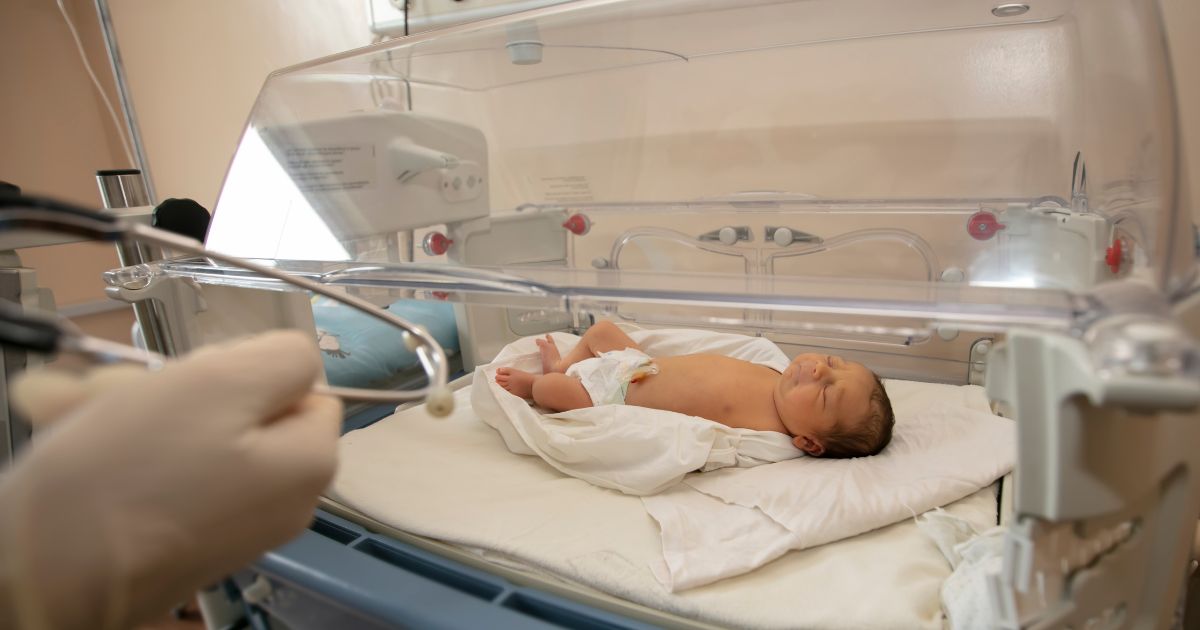NEONATOLOGY

Neonatology – The Neonatal Intensive Care Unit at Svastha Hospital is a 5 bedded unit with one high dependency bed and 4 low intensive beds catering to both intramural and extramural babies. The department has a good multidisciplinary neonatal follow up services for the high risk NICU graduates.
Neonatology – The unit is well equipped with state of the art equipment like ventilators including nasal CPAP, HFNC, multichannel monitors, SET pulse oximeters, T piece, ABG analyser etc. ROP screening, hearing screening, newborn screening. The Neonatal Intensive Care Unit (NICU)
Neonatology – The birth of a baby is a wonderful and very complex process. Many physical and emotional changes occur for both mother and baby.
A baby must make many physical adjustments to life outside the mother’s body. Leaving the uterus means that a baby can no longer depend on the mother’s blood supply and placenta for important body functions.
Baby in a neonatal intensive care unit (NICU) Before birth, the baby depends on functions from the mother. These include breathing, eating, elimination of waste, and immune protection. When a baby leaves the womb, its body systems must change. For example:- The lungs must breathe air.
- The cardiac and pulmonary circulation changes.
- The digestive system must begin to process food and excrete waste.
- The kidneys must begin working to balance fluids and chemicals in the body and excrete waste.
- The liver and immune systems must begin working on their own.
Your baby’s body systems must work together in a new way. In some cases, a baby has trouble making the transition outside the womb. Preterm birth, a difficult birth, or birth defects can make these changes more challenging. But a lot of special care is available to help newborn babies.
What is the neonatal intensive care unit (NICU)?
Newborn babies who need intensive medical care are often put in a special area of the hospital called the neonatal intensive care unit (NICU). The NICU has advanced technology and trained healthcare professionals to give special care for the tiniest patients. NICUs may also care areas for babies who are not as sick but do need specialized nursing care. Some hospitals don’t have the staff for a NICU and babies must be moved to another hospital. Babies who need intensive care do better if they are born in a hospital with a NICU than if they are moved after birth.
Giving birth to a sick or premature baby can be unexpected for any parent and can be overwhelming. This information is to help you understand why a baby may need to be in the NICU.
Which babies need special care?
Most babies admitted to the NICU are preterm (born before 37 weeks of pregnancy), have low birth weight (less than 2.5 Kg), or have a health condition that needs special care. Babies with health conditions such as breathing trouble, heart problems, infections, or birth defects are also cared for in the NICU.
Below are some factors that can place a baby at high risk and increase the chances of being admitted to the NICU. But each baby must be assessed to see if he or she needs the NICU. High-risk factors include the below.
Maternal factors include:
- Being younger than age 16 or older than age 40
- Diabetes
- High blood pressure (hypertension)
- Bleeding
- Sexually transmitted diseases
- Multiple pregnancy (twins, triplets, or more)
- Too little or too much amniotic fluid
- Premature rupture of membranes (also called the amniotic sac or bag of waters)
Delivery factors include:
- Changes in a baby’s organ systems due to lack of oxygen (fetal distress or birth asphyxia)
- Buttocks delivered first (breech birth) or other abnormal position
- The baby’s first stool (meconium) passed during pregnancy into the amniotic fluid
- Forceps or caesarean delivery
Baby factors include:
- Baby born at gestational age of less than 37 weeks or more than 42 weeks
- Birth weight less than 2,500 grams or over 4,000 grams
- Small for gestational age
- Resuscitation in the delivery room
- Birth defects
- Respiratory distress including rapid breathing, grunting, or apnea
- Infection
- Seizures
- Low blood sugar (hypoglycemia)
- Need for extra oxygen or monitoring, IV (intravenous) therapy, or medicines
- Need for special treatment or procedures such as a blood transfusion

